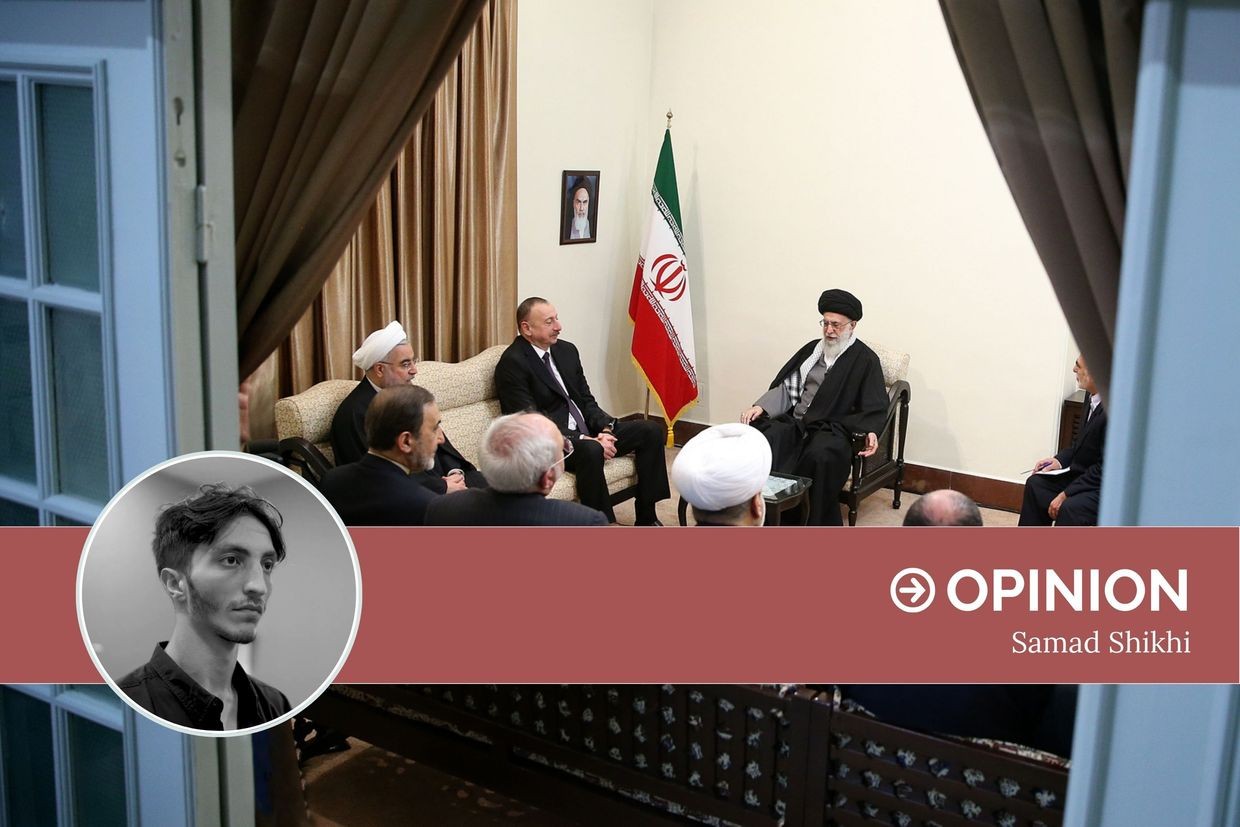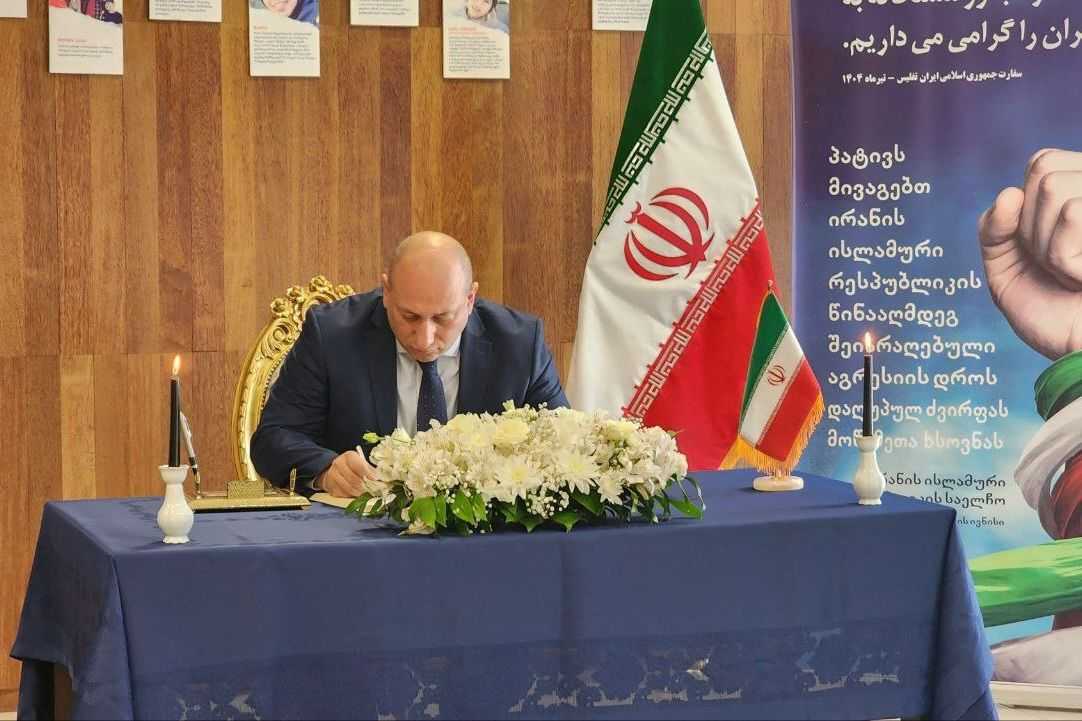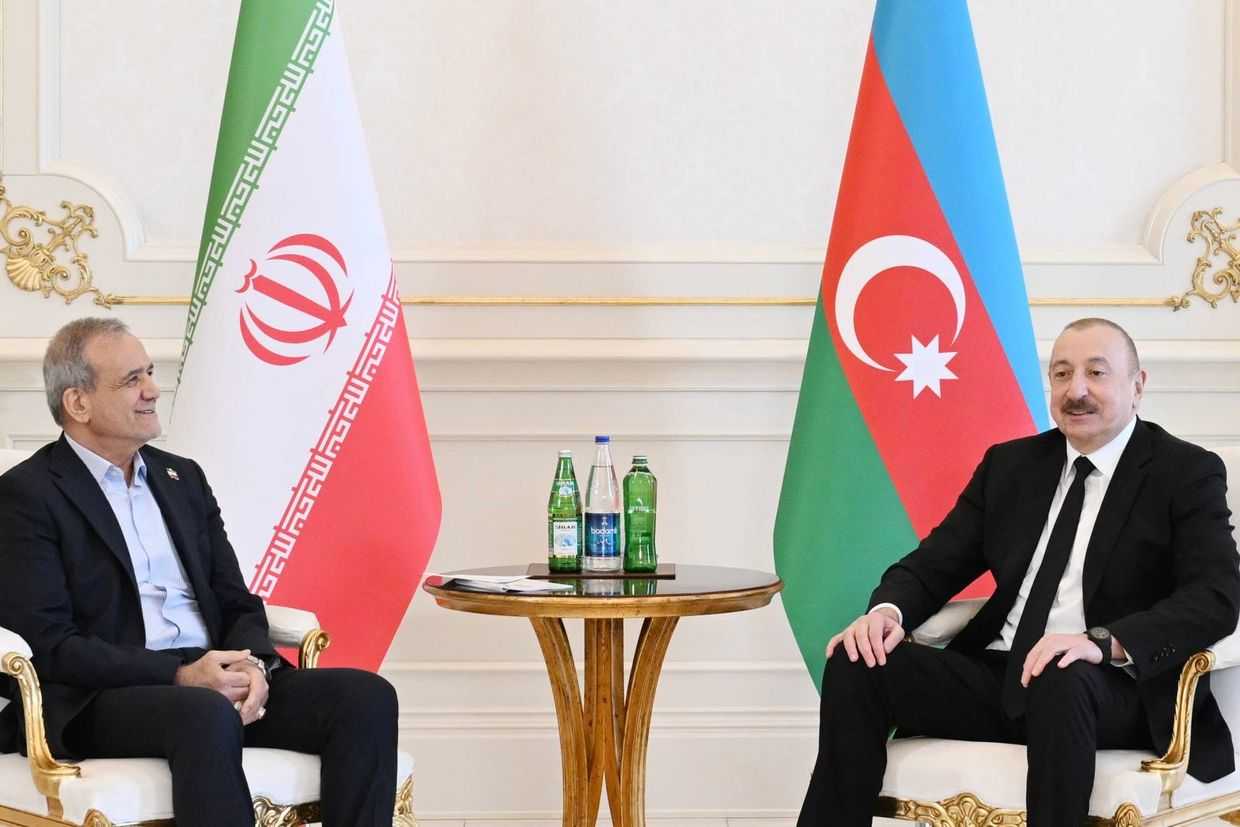Opinion | The Azerbaijani government will want no part in a war in Iran
As tensions between Iran and Israel escalate, Azerbaijan will likely be hoping the situation stabilises before it reaches its borders.

The worst part of being Caucasian is probably our neighboring countries. It’s as if someone chose all the countries that the world does not like, and, as it were, gathered them all around the Caucasus. Each of them has always tried to capture the Caucasus, each one has always been at war with other countries, and this has also had an impact on the Caucasus. The Caucasus has tried to avoid this by figuratively dancing between peace and war.
Although Russia’s full scale invasion of Ukraine is significant for the world and the Caucasus region, it is not as dangerous for our region as a potential war between Iran and Israel. The impact of the Russia–Ukraine war on the Caucasus has been relatively remote and manageable, affecting issues such as refugees, geopolitics, and the economy. On the other hand, a conflict between Israel and Iran could have a far greater impact, especially since both Azerbaijan and Armenia share a direct border with Iran, and are already in a state of conflict with each other.
I think the real reason the West wants to speed up a peace treaty between Azerbaijan and Armenia was to create a certain stability in the region. They are not happy with the image of Israel-Azerbaijan and Iran-Armenia alliances that are portrayed in the media today, and wish to bring both countries to the same side.
Following the latest escalation, the Azerbaijani side has presented events as ‘Israel’s attack on Iran’. This is an interesting and important detail, because it is evident that Azerbaijan is trying to distance itself from this conflict. Any war in Iran has the potential to disrupt the stability established by the Azerbaijani authorities.
Despite Azerbaijan keeping its land borders closed for years, partly to prevent any outflow from Russia, the Azerbaijani authorities would find it difficult to turn away an influx of refugees from Iran if the situation there were to come to that.
The Azerbaijani authorities also do not want to upset Israel, a close ally who has provided its full support during Azerbaijan’s own recent wars. Israel benefits from not sharing a border with Iran and believes it can wage war using planes and drones. On the other hand, Iran sees Azerbaijan as a potential threat, fearing that Israel might use the country against them. This highlights the fact that in a potential war, Azerbaijan would also be at risk.
Could Azerbaijan enter the war directly?
I do not believe there is a possibility that Azerbaijan would directly enter any war between Israel and Iran. The Azerbaijani government has been trying to pursue a balanced policy globally for years. In this way, the authorities have tried to protect both their international relationships and not to loosen their grip on power within the country.
This strategy of ‘balanced diplomacy’ has so far proved successful.
Even though Azerbaijan has provided humanitarian support to Ukraine during its war with Russia, it has also tried not to take a position against Russia. On the contrary, it has even sought closer allied relations with Russia.
Although Europe has called for the protection of ‘democratic values’ in Azerbaijan, it has not reacted seriously to political arrests and pressure in Azerbaijan, nor has America. This is also a testament to Azerbaijan’s ‘balanced diplomacy’.
And with Iran, despite the authorities arresting Shia religious figures accusing them of being ‘Iranian spies’, Iran has not reacted to any of this.
Israel has also not condemned Azerbaijan for its support for Gaza or its relations with Palestine.
There is also the question of how Russia might respond to the situation, and if it could use the opportunity to strengthen its position in the Caucasus.
If Russia decides to provide aid to Iran, it may choose to use the Caspian Sea route, but the land route through Azerbaijan could be considered safer.
There is also the possibility that Russia could use the fact that the world is distracted to instigate a conflict between Azerbaijan and Armenia, or to strengthen its position in Abkhazia and South Ossetia.
A refugee crisis?
In the event of war, Azerbaijan’s airspace, land borders, and sea borders could turn into a battlefield.
The influx of Russians who entered Georgia and Armenia following the invasion of Ukraine has shown the difficulties that a large influx of people can cause to the region. Although both have tried to use this in its favour, price increases and overpopulation turned it into a problem.
The first places those from Iran’s large population will turn to will likely be Azerbaijan and Turkey. They have few other options, due to cultural proximity and stability.
This will be a humanitarian and economic burden for Azerbaijan. They will have to build refugee camps, provide assistance, and ensure their security. When we also consider the ethnic Azerbaijanis in Iran, who are concentrated in the north near Azerbaijan, we see that this is an inevitable reality.
The Azerbaijani government, despite not voicing such an opinion at a state level, also surely sees those ethnic Azerbaijanis as an asset inside Iran. In nationalist circles, the idea of those Azerbaijanis could one day rise up and break away from Iran have often been voiced.
If Azerbaijan were to defend Israel, which bombs, kills, and burns the homes of those ethnic Azerbaijanis, this could also affect their love for Azerbaijan.
In this context, Azerbaijan’s careful balancing act becomes ever more precarious. Any misstep has the potential to undo years of calculated diplomacy. As the region braces for the possibility of a wider war, the question is not only whether Azerbaijan can stay out of it, but whether it can withstand its consequences.








